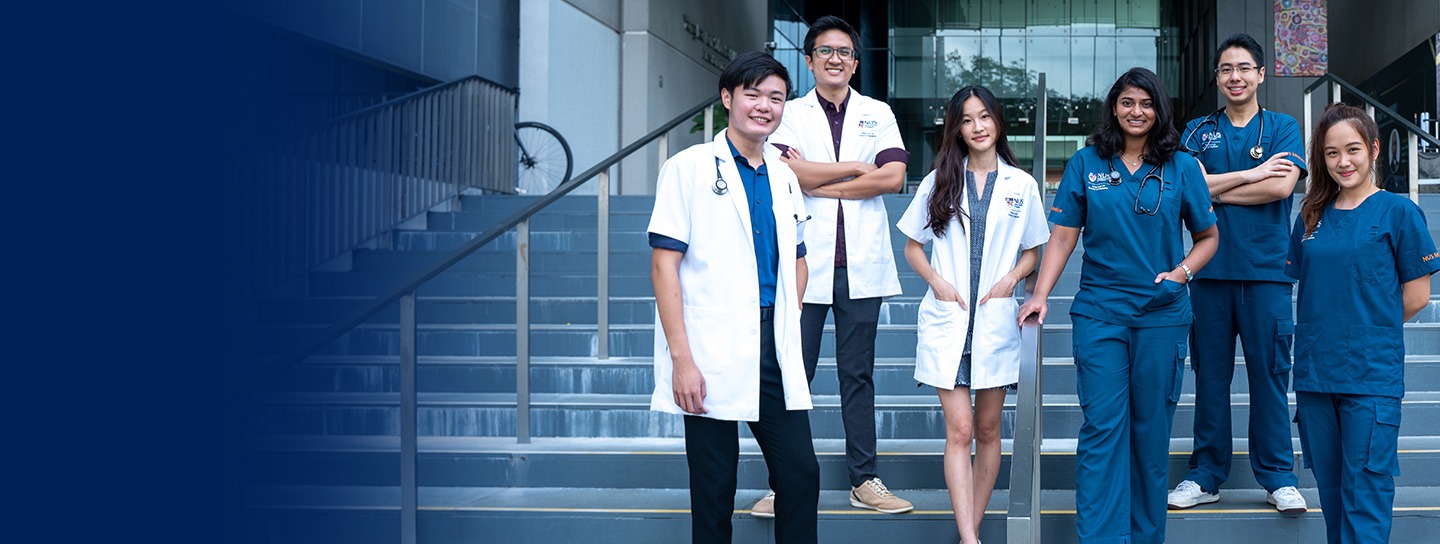October 2024 is packed with exciting health events for families in Singapore, and parents won’t want to miss a thing! From events, news to helpful wellness tips, it’s the perfect time to focus on family health.
Let’s dive into the latest health buzz that’s shaking things up for parents and kiddos alike. Ready to boost your family’s wellness game? October’s lineup of health news and events is here to make healthy living feel less like a chore and more like a fun family adventure!
Tiny Lab in Singapore Making Big Strides in Groundbreaking Cancer Treatment

Source: Facebook/NUS Yong Loo Lin School of Medicine
In the heart of the National University of Singapore’s Yong Loo Lin School of Medicine, a small, unassuming lab is quietly making waves on the global stage. While it may not boast the size or grandeur of its counterparts, the work being done here is anything but small. Researchers in this cutting-edge facility are developing life-saving treatments, offering new hope to cancer patients worldwide—especially those battling the most resistant forms of cancer.

Source: NUS Yong Loo Lin School of Medicine
Here are five remarkable ways this tiny lab is transforming cancer treatment, one breakthrough at a time.
1. Pioneering CAR-T Therapy That’s Changing Lives
At the core of this lab’s groundbreaking work is CAR-T cell therapy, a revolutionary cancer treatment that has given new hope to those with T-cell acute lymphoblastic leukaemia (T-ALL). What makes this lab stand out is its focus on CD7-targeting CAR-T cells, a promising solution for patients who have exhausted all other treatment options.
Despite the modest appearance of the facility, the impact is profound. In the highly specialized GMP-certified lab, researchers meticulously cultivate these life-saving cells, offering therapies that have led to full remission in multiple patients. One of the first to benefit from this was 14-year-old Viet Tai from Vietnam, whose cancer went into remission after receiving this cutting-edge treatment.
2. Real-Life Stories of Hope and Survival
The work being done in this lab isn’t just science—it’s saving lives. Take the case of Viet Tai, a 14-year-old who was battling a rare, aggressive form of leukaemia. After standard chemotherapy failed, Tai’s parents brought him to Singapore, where he became the first patient to undergo a compassionate CAR-T clinical trial. The result? Full remission after just one month of treatment. Today, Tai is thriving—focused on school and even planning his future career.
Another inspiring story comes from 12-year-old Maria Schreierer from Austria. After relapsing from her initial treatment, her family brought her to Singapore for CAR-T therapy. The results were astonishing: by day 16, Maria’s bone marrow was clear, and today she’s back to living her best life—enjoying school, friends, and plenty of time with her dogs.
3. Making a Global Impact with Cutting-Edge Research
Although this lab is small in size, it’s making a huge impact globally. The lab’s CAR-T cell therapy, designed to target CD7 on leukaemia cells, has been a game-changer. Published in Nature Medicine in September 2024, the results of this groundbreaking research show that 16 out of 17 patients achieved full remission within one month of treatment—a stunning achievement for patients previously out of options.
From Vietnam to Austria to Australia, patients from all over the world are travelling to Singapore to access this life-saving treatment. This small lab is becoming a global hub for cancer research, putting Singapore on the map as a leader in innovative cancer therapy.
4. Tolerable Treatments with Minimal Side Effects
This lab’s CAR-T therapy stands out as not only effective but also well-tolerated by patients. Unlike aggressive treatments that leave patients with debilitating side effects, studies have shown that CAR-T therapy causes minimal adverse effects, even for patients with high tumour burdens.
Hannah Thomas, a 32-year-old Australian, saw her life put on pause after her T-ALL diagnosis. She underwent chemotherapy, radiation, and a bone marrow transplant, but then relapsed. With few options left, she and her husband travelled to Singapore for CAR-T therapy. Nine months after receiving treatment, Hannah remains cancer-free and hopeful for the future—having experienced minimal side effects throughout the process.
5. Singapore: A Tiny Hub with Global Reach
Despite its small size, Singapore is quickly becoming a global leader in cancer research. The tiny lab within NUS Medicine proves that size doesn’t matter when it comes to making a difference. With 16 out of 17 patients achieving remission after receiving CAR-T therapy, the work being done here is transforming the future of cancer treatment.
Not only is this small lab helping individuals, but it’s also advancing the entire field of oncology. The research and clinical trials taking place in Singapore are providing valuable insights that could one day help patients all over the world. Singapore’s contributions to cancer research are proving that even a small country can make a monumental difference.
A Future of Hope
The stories of Viet Tai, Maria Schreierer, and Hannah Thomas all point to one truth: cancer treatment is evolving, and Singapore is leading the charge. From pioneering CAR-T therapy to saving lives that seemed out of reach, this tiny lab is making a global impact. While the facility may be small, its influence is anything but—and its work gives patients a second chance at life.
As Singapore continues to push the boundaries of cancer treatment, the future looks brighter for families around the world who are seeking hope and healing.
ALSO READ
September 2024 Health Events in Singapore Showcase Game-Changing Innovations
Teen Scientist Heman Bekele Lathers Up to Fight Skin Cancer One Bar of Soap at a Time
Real Moms of Singapore: “How Cervical Cancer Screening Saved My Life”